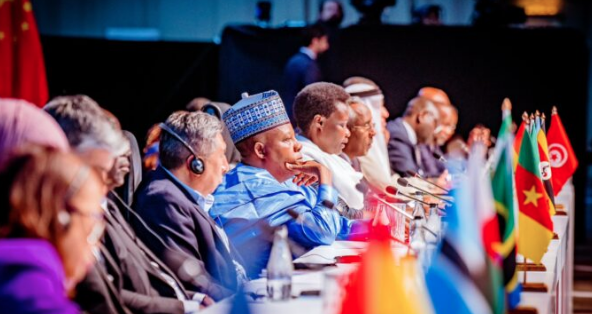Lagos State government has assured that the multi-billion naira Imota Rice Mill would be completed towards the end of the first quarter 2021, as the project is at 85 per cent completion level.
This statement was made by Ms Abisola Olusanya, Lagos State Commissioner for Agriculture while speaking during a recent webinar tagged: “Lagos State 2021 Budget Review Session.”
Speaking at the Webinar, she revealed that when Governor Babajide Sanwo-Olu took over as the chief executive officer of Lagos State, the rice mill was at 10-15 per cent completion levels, however, the project currently stands at 85 per cent completion levels, and will be completed towards the end of the first quarter of 2021.
While emphasizing the importance of the facility in Lagos State and why it’s key in Governor Babajide Sanwo-Olu T.H.E.M.E.S agenda, she revealed that the move to fast-track construction works at the mill was driven by the need to ensure food security in the state and across the nation, as rice is an important staple of the Nigerian diet.
The mill will help to strengthen the economic rigour of the nation and enhance economic resilience as the facility seeks to provide employment opportunities for Nigerians, through the creation of 250,000 jobs, not only in Lagos alone, but across Nigeria.
Ms. Olusanya stressed that the facility will help to create wealth across the Agricultural value chain, from the input supply to the paddy aggregation process, storage and warehousing, processing, distribution and then final consumption.
On completion, in line with the estimated installed infrastructure of the facility, the production capacity of the rice mill in Imota will set it among the largest in the world and the largest in sub-Saharan Africa with 2.5 million bags of 50kg rice annually.
The mills when operational will ensure a steady supply of freshly processed rice of about 2.4 million bags of 50kg per annum to Lagosians, in addition to over 250,000 jobs to be created in both the upstream and downstream sectors of the rice value chain.
However, to facilitate a seamless supply of input for the facility, Lagos will undertake a backward integration strategy in the form of collaboration with other states such as Kwara, Sokoto, Benue, Borno and Kebbi to meet the paddy requirement of the mill.



